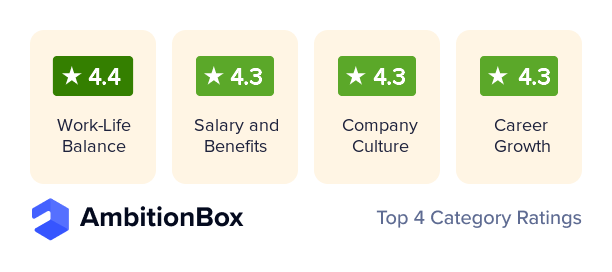UK is by far Europe’s biggest FinTech hub employing ~76,500 people (as of April 2018). It is widely believed that the sector will employ more than a 100,000 people by 2030, creating 30,000 new jobs according to an estimate by Innovate Finance, the independent membership association representing UK’s global FinTech community.
Going by the present growth, UK could be home to more than 3,300 FinTech companies by 2030, doubling from its current levels today. An estimate done by HM Treasury, Innovate Finance and EY FinTech puts the total number of FinTechs operating out of the UK at 1,600 (as of 2017). The sector is not only growing at a rapid pace but is also maturing at the same time. It is building on its status by fostering a more conducive regulatory atmosphere through a mix of domestic support and international partnerships.
According to an estimate from 2017, out of US$14.24bn (Venture Capital) invested in FinTechs globally, UK has attracted US$1.8bn (across 2,400 deals), behind the United States (US$7bn) and ahead of China (US$1.6bn). 46% of the investment came from VCs domiciled in the UK and 54% of the investments came from non-UK domiciled VCs. The investment in 2017 is 153% more than what it attracted in 2016 (US$704mn).
Does Brexit spoil the party?
While there is no doubt that UK’s decision will have far-reaching effects on its economy and jobs, particularly the tech sector, recent numbers do not reflect the pessimism. Between June 2016 (since the vote to leave the EU) and June 2018, British tech companies have attracted 3 times more VC investments than any other European country. In fact the British tech industry has received £5bn worth of VC funding during the period – more than France, Germany and Sweden put together. FinTechs and AI stood out as the key sectors driving the surge.
However, UK-based FinTechs face operational challenges with the existing non-EEA immigration system around:
- Processing applications while the candidate remains overseas
- Complexity of rules
- High costs, particularly for smaller FinTechs
- Delays in application processing adversely affects companies seeking to grow and scale up
- 3rd party sponsorship and related complexities (many smaller companies depend on this)
What kind of skills does the UK FinTech sector need?
Application/Software Development has emerged as the core skill in demand within the FinTech community, according to a research by WPI Economics. Measured across 3 different kinds of worker groups – UK nationals, EEA nationals and non-EEA nationals, Software Development skills rank highest in terms of demand in the UK. 47% of all FinTechs in the UK have indicated increased demand for software development skills. Sales, Marketing and General Management roles are also in great demand. Product-centric roles and UX (user experience) and design related roles come next in terms of demand intensity.
However, on the flip-side, the same study brings forth some uncomfortable signs; almost 9 out of 10 companies are considering relocation outside of the UK if it became difficult to attract talent within the UK and another 32% indicated that this may lead to slowing down of planned recruitment activities. None of these indicators favor the UK FinTech sector.
LinkedIn’s Recruiter Sentiment study throws up interesting findings;
- New technologies, disruptors, talent crunch and political events likely to shape up hiring in the financial services sector in 2019
- Biggest increase has been in the demand for new digital skills – blockchain, statistical analysis & data mining, network information & security, mobile applications and machine learning
- Challenger banks and start-ups have become more appealing to candidates rather than traditional banks
The key to long-term success of the UK FinTech sector lies in its ability to attract, hire and retain talent. Companies in the UK are already thinking of and devising new strategies to gain access to global talent; some of them are:
- Outsourcing key functions (including offshoring)
- Setting up new offices in other countries, not only as a part of their expansion strategy but also to gain access to talent in new regions/geographies who can work on international assignments.
- Using remote workers – FinTechs feel there is higher potential for mainstreaming the ‘remote worker’ concept. This has been aided by advancements in collaboration technologies
Flexible Immigration Policy
42% of UK’s FinTech employees are from outside the country – 28% are from the European Economic Area (EEA) while 14% are from the non-EEA countries. However, there could be a shortfall of ~3,200 (3%) highly skilled workers by 2030….
One of the core demands of the industry since Britain’s vote on Brexit has been to ensure that UK maintains a flexible immigration policy in the future. Barriers inhibiting the free movement of people across the European Economic Area (EEA) can prove to be detrimental to the interests of the industry. The sector is highly dependent on technology talent, the lack of which could harm long term attractiveness of UK as a place to do business leading to a shortfall in highly skilled workers. Innovate Finance estimates that the industry could lose up to £361mn in the coming years.
Coordinated action
Analysts feel that there is also a need to bring a balance between accessing global talent and to develop a local talent ecosystem by developing skills within the country for a workforce-ready future.
Innovative Recruitment Strategies - the war for scarce talent
1. Incubators/accelerators
In the midst of this, there is competition brewing between large financial behemoths and smaller start-ups which are seen as disruptors in the market. Both these categories are vying for talent from the same pool of candidates. Add to that the fact there is always a potential for consolidation – the bigger companies are keen to acquire not only customers, new product lines but also top talent. There can be no better way to achieve this than by acquisitions.
1.1. JP Morgan has launched what it calls ‘In Residence Programme’ which invites start-ups to come and discuss with them business to develop innovative offerings and solutions for the sector. Emerging FinTech start-ups join the initiative and for a period of 6 months has access to facilities and systems. Any innovation which is built during the period remains with the employees/people driving it. Similar efforts have been made by Lloyds Banking Group. Its state-of-the-art flagship branch is a blend of hi-tech approach with personalized services against the backdrop of a relaxed atmosphere. This enables the Group to attract not only customers but also potential talent.
2. Talent co-sourcing
Co-sourcing of talent across borders is picking up. Manchester-based FinTech company AccessPay has tied up with software development company Godel to tap in to and leverage the latter’s talent resources based out of Minsk, Belarus. This arises out of the limitations of a fully in-house development team. Many start-ups are growing very fast and one of the key challenges is to keep pace with the market on the product development side. There are software development projects which may require an external supply of skills at a very short notice to ensure business-as-usual. The partnership between AccessPay and Godel represents a win-win situation for both – AccessPay benefits from a strong talent pool at Godel’s on demand without compromising its core business areas. Godel can use its resources for cross-badging and also from a revenue standpoint.
FinTechs are using crowdsourcing platforms such as Google-owned Kaggle to access talent that may not be available, commonly for projects with a specified duration. This allows access to talent that the companies may not need permanently.
4. Leveraging Data & Insights to plan for people functions
In a scenario where there is a chronic shortage of talent, FinTechs realize that their recruitment strategies need to be forward looking. Planning for resources for the long-term (3-5 years) has become a business imperative. To achieve this more and more companies are leveraging real-time workforce insights to plan for up-skilling and retaining talent.











